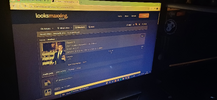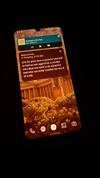1. Blue Light and Sleep Disruption
Impact on Melatonin Production: Exposure to blue light, particularly during evening hours, can suppress melatonin secretion, a hormone crucial for regulating sleep. This suppression can lead to difficulties in falling asleep and reduced sleep quality. A study by Harvard researchers found that blue light exposure suppressed melatonin for about twice as long as green light and shifted circadian rhythms by twice as much (3 hours vs. 1.5 hours).
https://www.health.harvard.edu/staying-healthy/blue-light-has-a-dark-side?
Circadian Rhythm Disruption: Blue light exposure before bedtime can trick the brain into thinking it's still daytime, disrupting the body's internal clock and making it harder to fall asleep. The Sleep Foundation notes that being exposed to blue light in the evening can leave individuals feeling alert instead of tired.https://www.sleepfoundation.org/bedroom-environment/blue-light?
2. Digital Eye Strain
Symptoms and Causes: Prolonged screen time can lead to digital eye strain, characterized by symptoms like sore or irritated eyes and difficulty focusing. The American Academy of Ophthalmology states that blue light from computer screens and digital devices can decrease contrast, contributing to eye strain. https://preventblindness.org/blue-light-and-your-eyes/
Effectiveness of Blue Light Blocking Glasses: Several studies suggest that blue light-blocking glasses do not significantly improve symptoms of digital eye strain. The American Academy of Ophthalmology does not recommend these glasses due to a lack of scientific evidence supporting their efficacy. https://www.aao.org/eye-health/tips-prevention/are-computer-glasses-worth-it?
3. Potential Retinal Damage
Risk of Age-Related Macular Degeneration (AMD): Continuous exposure to blue light over time may damage retinal cells, potentially leading to vision problems like AMD. Prevent Blindness highlights that studies suggest prolonged blue light exposure could contribute to retinal damage.
https://preventblindness.org/blue-light-and-your-eyes/
Oxidative Stress: Blue light can induce the production of reactive oxygen species (ROS) in the mitochondria of lens epithelial cells, which may lead to oxidative stress and damage. A study published in the International Journal of Ophthalmology discusses this mechanism.
https://pmc.ncbi.nlm.nih.gov/articles/PMC6288536/
4. Preventive Measures
Limiting Screen Time Before Bed: Reducing exposure to screens at least an hour before bedtime can help maintain natural sleep patterns. The Sleep Foundation emphasizes that minimizing blue light exposure in the evening supports better sleep.
https://www.sleepfoundation.org/bedroom-environment/blue-light
Using Blue Light Filters: Many devices offer settings or applications that filter out blue light, reducing exposure during evening hours. The American Academy of Ophthalmology suggests using these filters to decrease eye strain.
Regular Screen Breaks: Following the 20-20-20 rule—every 20 minutes, look at something 20 feet away for 20 seconds—can alleviate digital eye strain. This practice is recommended by the American Optometric Association.
https://apnews.com/article/computer-screens-eye-health-e0c99719204526ed5f08423f1b15f557
Optimizing Lighting Conditions: Ensuring proper ambient lighting when using screens can reduce eye strain. UC Davis Health advises controlling lighting and glare on device screens to enhance visual comfort.
https://health.ucdavis.edu/blog/cul...effects-on-your-eyes-sleep-and-health/2022/08
5. Benefits of Managing Blue Light Exposure
Improved Sleep Quality: Reducing blue light exposure before bedtime can enhance sleep quality by supporting natural melatonin production. Harvard Health Publishing discusses the relationship between blue light and melatonin suppression.
https://www.health.harvard.edu/staying-healthy/blue-light-has-a-dark-side
Reduced Eye Strain: Implementing strategies like regular breaks and optimizing screen settings can alleviate symptoms of digital eye strain, leading to increased comfort during screen use.
Potential Protection Against Retinal Damage: Minimizing excessive blue light exposure may reduce the risk of retinal damage and the development of age-related vision problems.
Personally, I use a blue light filter on my PC set to about 80%, and it's turned on my phone as well. Additionally, I have an app to make it even redder.


Hope you have a nice day twin
Impact on Melatonin Production: Exposure to blue light, particularly during evening hours, can suppress melatonin secretion, a hormone crucial for regulating sleep. This suppression can lead to difficulties in falling asleep and reduced sleep quality. A study by Harvard researchers found that blue light exposure suppressed melatonin for about twice as long as green light and shifted circadian rhythms by twice as much (3 hours vs. 1.5 hours).
https://www.health.harvard.edu/staying-healthy/blue-light-has-a-dark-side?
Circadian Rhythm Disruption: Blue light exposure before bedtime can trick the brain into thinking it's still daytime, disrupting the body's internal clock and making it harder to fall asleep. The Sleep Foundation notes that being exposed to blue light in the evening can leave individuals feeling alert instead of tired.https://www.sleepfoundation.org/bedroom-environment/blue-light?
2. Digital Eye Strain
Symptoms and Causes: Prolonged screen time can lead to digital eye strain, characterized by symptoms like sore or irritated eyes and difficulty focusing. The American Academy of Ophthalmology states that blue light from computer screens and digital devices can decrease contrast, contributing to eye strain. https://preventblindness.org/blue-light-and-your-eyes/
Effectiveness of Blue Light Blocking Glasses: Several studies suggest that blue light-blocking glasses do not significantly improve symptoms of digital eye strain. The American Academy of Ophthalmology does not recommend these glasses due to a lack of scientific evidence supporting their efficacy. https://www.aao.org/eye-health/tips-prevention/are-computer-glasses-worth-it?
3. Potential Retinal Damage
Risk of Age-Related Macular Degeneration (AMD): Continuous exposure to blue light over time may damage retinal cells, potentially leading to vision problems like AMD. Prevent Blindness highlights that studies suggest prolonged blue light exposure could contribute to retinal damage.
https://preventblindness.org/blue-light-and-your-eyes/
Oxidative Stress: Blue light can induce the production of reactive oxygen species (ROS) in the mitochondria of lens epithelial cells, which may lead to oxidative stress and damage. A study published in the International Journal of Ophthalmology discusses this mechanism.
https://pmc.ncbi.nlm.nih.gov/articles/PMC6288536/
4. Preventive Measures
Limiting Screen Time Before Bed: Reducing exposure to screens at least an hour before bedtime can help maintain natural sleep patterns. The Sleep Foundation emphasizes that minimizing blue light exposure in the evening supports better sleep.
https://www.sleepfoundation.org/bedroom-environment/blue-light
Using Blue Light Filters: Many devices offer settings or applications that filter out blue light, reducing exposure during evening hours. The American Academy of Ophthalmology suggests using these filters to decrease eye strain.
Regular Screen Breaks: Following the 20-20-20 rule—every 20 minutes, look at something 20 feet away for 20 seconds—can alleviate digital eye strain. This practice is recommended by the American Optometric Association.
https://apnews.com/article/computer-screens-eye-health-e0c99719204526ed5f08423f1b15f557
Optimizing Lighting Conditions: Ensuring proper ambient lighting when using screens can reduce eye strain. UC Davis Health advises controlling lighting and glare on device screens to enhance visual comfort.
https://health.ucdavis.edu/blog/cul...effects-on-your-eyes-sleep-and-health/2022/08
5. Benefits of Managing Blue Light Exposure
Improved Sleep Quality: Reducing blue light exposure before bedtime can enhance sleep quality by supporting natural melatonin production. Harvard Health Publishing discusses the relationship between blue light and melatonin suppression.
https://www.health.harvard.edu/staying-healthy/blue-light-has-a-dark-side
Reduced Eye Strain: Implementing strategies like regular breaks and optimizing screen settings can alleviate symptoms of digital eye strain, leading to increased comfort during screen use.
Potential Protection Against Retinal Damage: Minimizing excessive blue light exposure may reduce the risk of retinal damage and the development of age-related vision problems.
Personally, I use a blue light filter on my PC set to about 80%, and it's turned on my phone as well. Additionally, I have an app to make it even redder.


Hope you have a nice day twin

